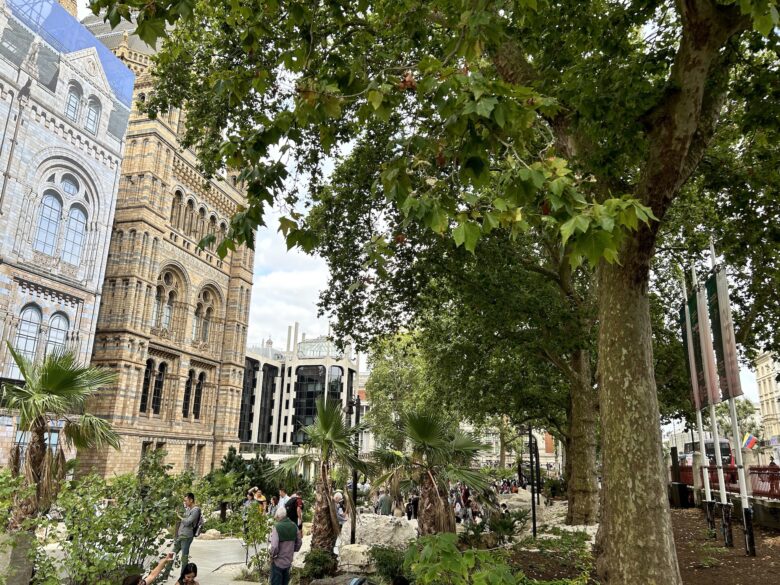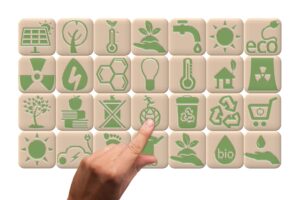(This post will be regularly updated to include new exhibitions.)
To tackle climate change, educating the next generation about sustainability has never been more important. But how do you inspire children and young people to care about a global agenda like climate change? One of the best ways is through engaging, hands-on experiences that bring the topic to life. In this post, I’ve rounded up some of the best family-friendly, free climate change exhibitions in the UK, providing families with the opportunity to explore the challenges our planet faces in a fun, interactive, and educational way.
From learning about the energy revolution to discovering the wonders of marine life and seeing how design can help reduce waste, these exhibitions offer something for everyone, empowering both children and adults to take action. Whether you’re a parent looking for a meaningful day out or simply interested in broadening your family’s environmental awareness, these exhibitions provide an accessible and inspiring way to engage with climate change. All free!
1. The Museum Gardens: Journey Through Time and Nature
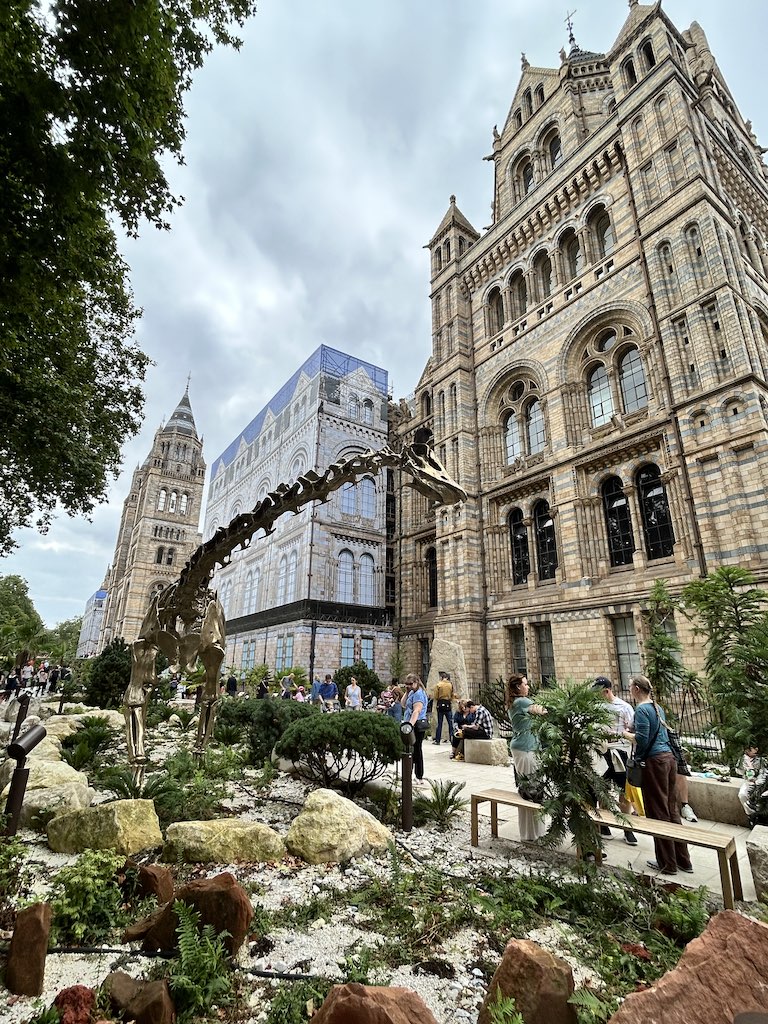
‘An extensive revamp has transformed the land around the museum into an educational outdoor space – my four-year-old loved it. ‘
★★★★★ – The Telegraph
A haven for wildlife and people in the heart of London, the National History Museum has just opened their newly transformed gardens to the public, free!
Entering the garden from the Exhibition Road area, emerging into the Evolution Garden and begin your journey through 2.7 billion years of history of our planet, told through an immersive timeline of plants, geology, and representations of reptiles, birds and mammals, including the Museum’s much-loved full-size Diplodocus.
As you walk through the past you step into the present day in an urban world. In the Nature Discovery Garden, explore grassland, wetland and woodland habitats, experience how nature can thrive in urban spaces. Listen to birds singing in the trees, watch the ripples dance across the ponds, and discover how we can make space for nature in our changing world and work together to protect the incredible diversity of life we share it with.
Venue: National History Museum
Date: Open daily, 10.00–17.50
Location: Cromwell Road, South Kensington, London, SW7 5BD
Admission: Free, no ticket required. Book a free ticket to visit the Museum as well.
2. Energy Revolution: The Adani Green Energy Gallery
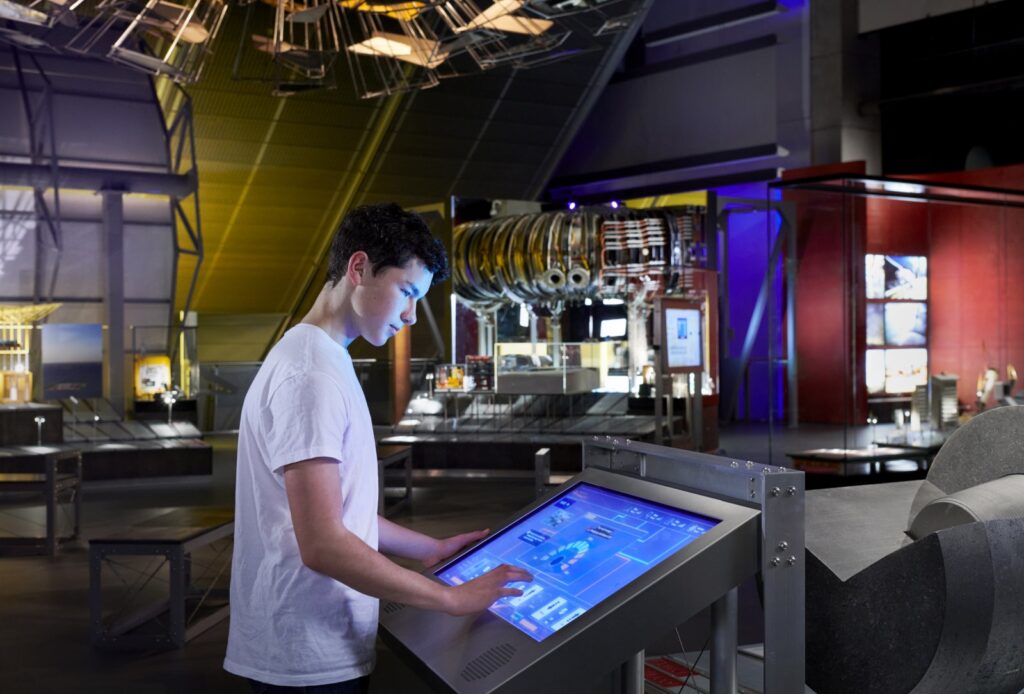
image source: Science Museum
Discover how the world can generate and use energy more sustainably! Energy Revolution: The Adani Green Energy Gallery looks at the past, present and future of energy systems, features recognisable and surprising objects plus interactive exhibits to highlight how we can journey to a more sustainable world—and our role in achieving that low carbon future.
Opened in 2024, this free gallery contains three sections, each exploring this century’s defining challenge in a different way:
- Future Planet explores the climate change we are already experiencing and how scientists use complex computer models to glimpse the climate futures we could face, depending on the decisions we make today.
- Future Energy focuses on the technologies—and the people behind them—that are reimagining how energy is supplied and used today, as well as showcasing artefacts that have led the way in the energy transition away from fossil fuels.
- Our Future looks forward to an inspiring new world that is being imagined, with children’s creative ideas of how the world will meet its future energy needs showcased through a hands-on, interactive table.
Bring your family and discover the innovations shaping our low-carbon future. Whether you’re interested in cutting-edge technology or how kids envision the future of energy, this free exhibit promises a thought-provoking experience for all ages.
Venue: Science Museum
Date: Open daily, 10.00–18.00
Location: Exhibition Road, South Kensington, London, SW7 2DD
Admission: Need to pre-book a free ticket
3. Planet Ocean
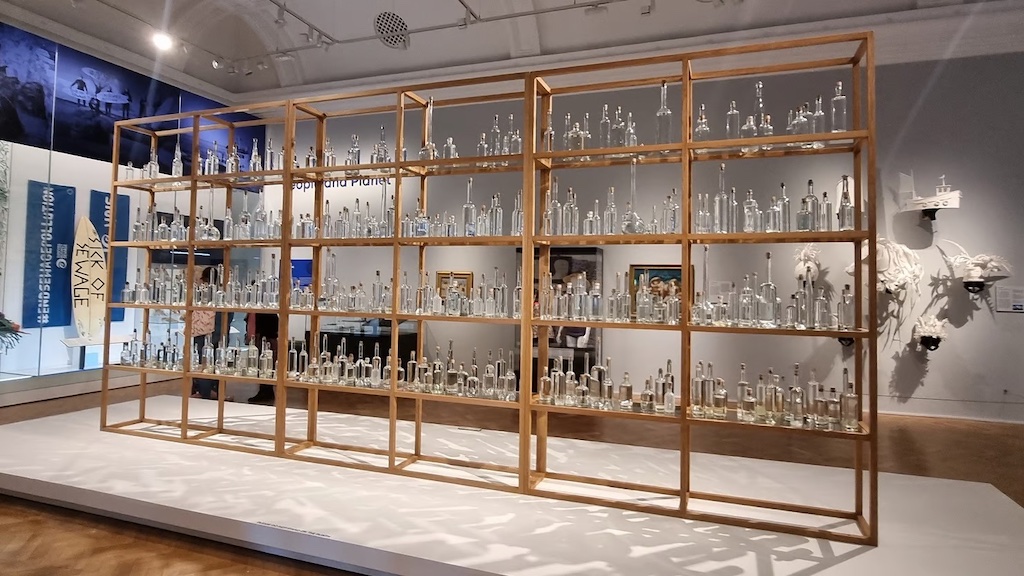
image source: The Box Plymouth
‘How inappropriate to call this planet ‘Earth’ when it is clearly ‘Ocean’.’
– Sir Arthur C. Clarke
The Planet Ocean exhibition in Britain’s Ocean City Plymouth, offers an immersive exploration of humanity’s relationship with the sea and its crucial role in addressing the climate emergency.
With an array of marine specimens, swimming hats and costumes, examples of single use plastics and popular paintings including A Fish Sale on a Cornish Beach by Stanhope Forbes, visitors will learn how essential plankton are to life on Earth, how marine biology has been actively pioneered in Plymouth since the 1880s, how plastics are only one part of a wider problem of marine litter and pollution, and how we have the power to be part of the solution.
The exhibition also features a series of ocean-inspired works by contemporary artists, highlighting the beauty and fragility of coral in the world’s ecosystem, our increasing relationship with disposable culture and waste, and incredible pieces made from recycled ocean and rural plastic waste.
Venue: The Box Plymouth
Date: Until Sun 27 Apr 2025. Open Tuesday to Sunday and selected Bank Holidays, 10.00–17.00
Location: Tavistock Place, Plymouth, Devon, PL4 8AX
Admission: Free, no ticket required
4. Waste Age: What Can Design Do

image source: Midlands Art Centre
Waste Age: What can design do? is an eye-opening group exhibition focused on a new generation of designers who are rethinking our relationship to everyday things. From fashion to food, electronics to construction, even packaging – finding the lost value in our trash and imagining a future of clean materials and a circular economy could point the way out of the Waste Age.
Highlighting the environmental crisis and design’s role in the problem, this exhibition explores what lies beyond our current toxic waste infrastructures, and explores the environmental, social, and geopolitical forces at work.
Visitors will be immersed in the waste crisis before being introduced to the transformative potential of new design approaches, which are redefining industries and paving the way for a cleaner, more sustainable future.
This is an exhibition that not only seeks to imagine alternative futures, but one that empowers the visitor to be part of the solution.
Venue: Midlands Arts Centre
Date: Sat 26 Oct 2024 – Sun 23 Feb 2025. Open daily, 11.00–17.00
Location: Cannon Hill Park, Birmingham, B12 9QH
Admission: ‘Pay what you choose’, free tickets available, booking now open.
5. Wild
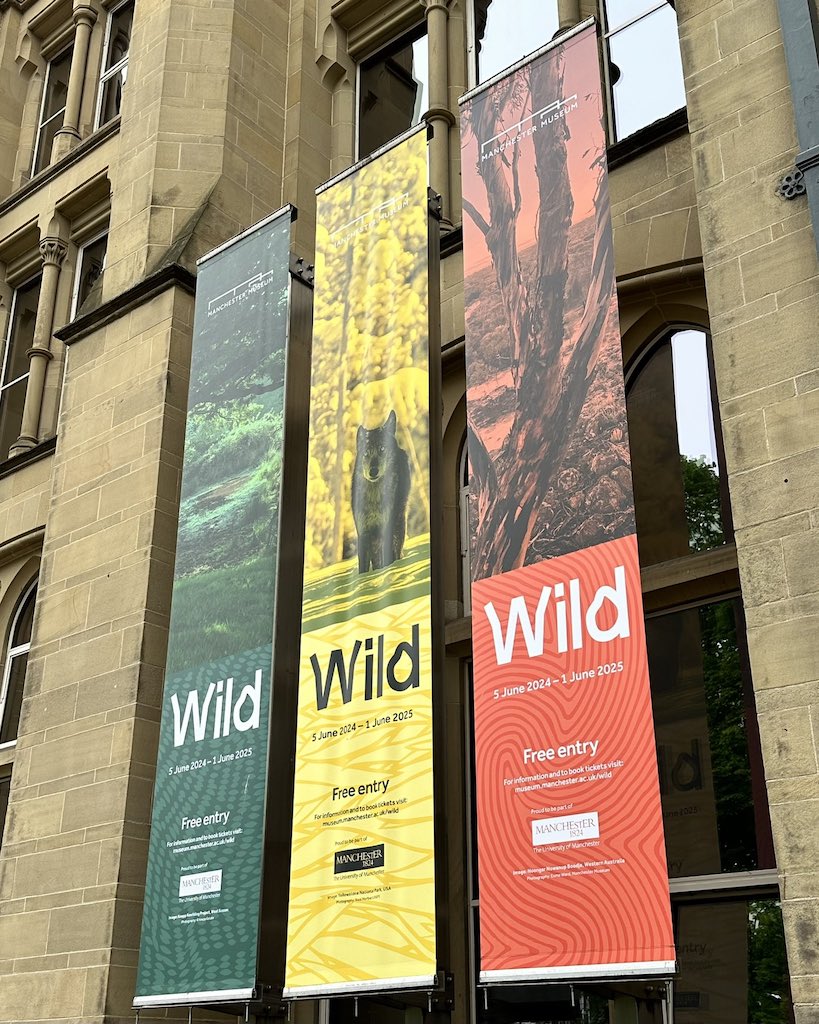
image source: Manchester Museum X @McrMuseum
‘Wild is one of Europe’s first large-scale exhibitions to look at how people are working to make the world around them more ‘wild’.’
– Manchester Museum Director Esme Ward
Will going ‘wild’ help us to tackle the climate and biodiversity crisis?
Wild, a new exhibition that opened at Manchester Museum, explores our relationship with the natural world and looks at how people across the globe are creating, rebuilding and repairing connections with nature.
Featuring an immersive installation, audio, film and interactive elements, alongside natural history collections and artworks, the exhibition will challenge the way we think about nature, whisking us to wild places across the world to hear a diverse range of voices, from Aboriginal elders to researchers and community activists.
In one case, the restoration of traditional practices is helping to heal both the land and the people. In others, biodiversity has exploded where farmland has been rewilded and the reintroduction of animal species is helping to restore ecological balance.
Venue: Manchester Museum
Date: 5 Jun 2024 -1 Jun 2025. Open Tue to Sun. Tue 10am-5pm, Wed10am-9pm, Thu 10am-5pm, Fri 10am-5pm, Sat 8am-5pm, Sun 10am-5pm
Location: The University of Manchester, Oxford Road, Manchester, M13 9PL
Admission: Free, booking required.
How to Make the Most of Your Exhibition Visit
Visiting an exhibition that inspires action on climate change as a family can be an enriching experience for both children and adults. To ensure you get the most out of your visit, here are some tips and activities to help prepare, engage, and continue the learning experience at home.
Tips on Preparing Children for Climate-Related Topics
Before attending the exhibition, it’s helpful to introduce the concept of climate change and sustainability in a simple, age-appropriate way. Explain that you’ll be exploring topics like how we can protect the planet, reduce waste or conserve energy. You could watch a short documentary or read a book on climate change together to set the stage. This will help children and young people understand the context of what they’ll see and feel more connected to the exhibitions.
Suggested Questions to Ask Children and Young People After the Exhibition
Asking good questions after the exhibition can encourage deeper reflection and conversation. Here are some questions to engage your family:
- What was your favourite part of the exhibition? Why?
- What did you learn about how we can protect the planet?
- Did anything surprise you?
- What do you think we can do to help with climate change at home?
Encourage the family to share their thoughts and opinions, which will reinforce what they’ve learned and open the door for further discussions on sustainability.
Fun Activities or Follow-Up Actions You Can Do at Home
To extend the impact of your visit, consider doing fun, eco-friendly activities at home. Here are a few ideas:
- DIY Recycling Projects: Turn household waste into creative crafts, learning to reuse materials while having fun.
- Plant a Garden: Whether it’s a small windowsill herb garden or flowers in the backyard, this hands-on activity connects children with nature and the concept of sustainability.
- Energy-Saving Challenge: Set a family goal to reduce energy consumption at home by turning off lights, conserving water, or using less heating.
- Climate Change Diary: Encourage children and young people to keep a diary of small eco-friendly actions they take each day, from recycling to turning off taps. Over time, this will help them see how small changes can have a big impact.
By preparing beforehand, engaging during the exhibitions, and continuing the conversions and actions afterwards, your family will make the most of the experience, taking meaningful steps toward a more sustainable lifestyle.
